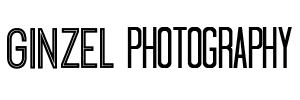all the
Info
FAQ
Q. What is your experience/education?
A. I have studied photography since 2005. At this time, I was introduced to photography through the pinhole method, and then progressed to 35mm film. In 2007, I begain my post secondary classes for photography at Ryerson University and in 2011 I earned my BFA. Throughout my time at Ryerson, I gained experience using medium format and 8x10 large format cameras as well as learning the digital systems. My knowledge of digital photography began in my classes at Ryerson, but has since been updated and is something that I continually work on as technology is always changing and improving.
Q. Do you travel?
A. Yes absolutely! There are appropriate travelling charges, but I enjoy being a part of a project that stretches across the country or world.
Q. How quickly will I receive my images?
A. Typically shoots are complete and delivered in 1 week. This time frame will depend on the type of shoot being edited. Shoots with a higher, and more extensive amount of photo editing required, may take 2-2.5 weeks.
Q. Can I be present during the shoot?
A. If you would like to come to the shoot, then yes, by all means, you should be there too! It’s really your preference that will dictate whether I shoot alone or not. Some clients are very busy with other business, so we go over in great detail the plan for the shoot, and the look of the images before. However, if you are a part of the shoot as well, this allows you opportunities to make last minute adjustments much easier and we can bounce ideas back and forth.
Q. How many people are on your team?
A. For a typical shoot I find I am all that is needed. However depending on the size and the deadline requirements, I would ensure that I have an assistant present to help with setting up equipment.
Q. What does a “Magic Hour” shoot entail?
A. Magic Hour, or Golden Hour, is the last hour left of daylight before the sun goes completely down, or the first hour in the morning before the sun breaks the horizon. It is referred to as “Magic” because the sunlight is not yet strong enough to over power the ambient light of buildings. Instead, they work almost harmoniously together to create spectacular images. This is a wonderful time to take exterior and interior photos of architecture. As the nickname suggests though, there is only about an hour to work with the optimal lighting conditions. When I do a Magic Hour shoot, I only have enough time to create 2-3 images. In my preferred method, I use both ambient light and flash, and typically take between 25 to 75 source images throughout the evening. The magic then continues in photoshop, where I select the source files with the best exposures and blend them together to create the final, stellar image.
Q. What is the best time of day to plan a shoot?
A. Any time of day can give great results depending on what you’re after. Instead, it might be better to know what each time of day or “type” of day can offer you. For interiors, a bright sunny day will cast light and create shadows through east, south and west facing windows. The light coming through windows across the room often has a dramatic, “happy” feel to it. Outdoors, a bright sunny day offers much desired contrast and creates interesting images. On a heavily overcast day, the light is softened, creating virtually no shadows. For interiors, this provides a lovely calm feeling. For exteriors, this creates an even flat lighting across the building and a boring sky (which I often replace in photoshop). “Magic Hour” is my favourite time to photograph exterior architecture for the dynamic lighting; just the right amount of contrast, exciting sky, and detail through the windows. Interiors can also be photographed during Magic Hour and will show off the interior lighting design better than any other time of day and it creates an exciting and mysterious dramatic mood. If you’re not sure which time of day you would like your project photographed during, we can discuss the details and come to the best choice for your needs.
Q. What equipment do you use in your shoots?
A. I have my staples. The gear I use faithfully on every shoot; 2 Nikon D800’s, Nikon 24mm PCE, Nikon 14-24mm, Sigma 35mm, Nikon 50mm, Manfrotto Tripod, IPAD, and 2 Camranger’s live view remote trigger (I connect this with my IPAD). The gear I use often depending on shoot requirements; 2 studio strobe lights, Nikon Sb-900, mini octobox, a large octobox, 2 umbrellas, 2 parabolic umbrellas, pocketwizard transceivers, a large 5 in 1 reflector, and a photoflex 5’x7′ hilite background. On top of the gear I use, I have accumulated an arsenal of other incredibly useful items like clamps, tapes and fabrics, to get any job done successfully.
@insta
@insta
© 2018 Jessica Ginzel London Ontario Architectural Photographer|ProPhoto Blog Template|© The Design Space Co



